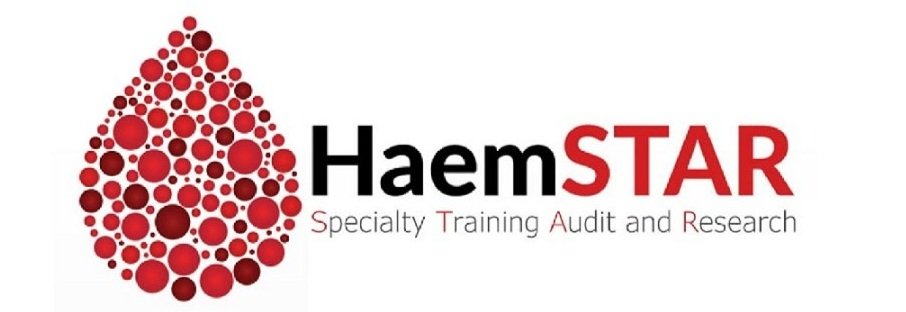2023 HaemSTAR Meeting Highlights
Writes Dr Eman Hassan, Haematology Registrar, West Midlands
Finally, after a long four years of waiting, on Monday 6th February, HaemSTAR members had the chance to get together for a face-to-face meeting. The event in Newcastle upon Tyne was tagged to the popular ASH/ISTH non-malignant highlights day, making the journey even more worthwhile.
It was an exciting opportunity for people of different backgrounds to come together to share experiences, get the most recent updates on HaemSTAR projects, and listen to some compelling educational content delivered by experts in classical haematology. A wide variety of delegates attended including junior doctors, haematology trainees, consultants, pharmacists, clinical scientists, and industry representatives. The meeting was also streamed online for those unable to attend in person to ensure no one missed out.
The meeting started with a warm welcome from the HaemSTAR chair Pip Nicolson, and this was followed by a rich session about current and future HaemSTAR Projects. Lorna Cain presented initial results from the national Two Sample Rule survey which has been supervised by Dr Suzy Morton, Birmingham. The survey was circulated end of last year to ED doctors through HaemSTAR leads. Strikingly, results showed poor understanding of the reasons for the Two Sample Rule; two thirds had taken two samples from the same blood draw and labelled them with different times. This had a lot of interest on Twitter! Full results will be presented at the BSH ASM this year.
Following this, Christina Crossette-Thambiah, presented results from A2PLS study, which was also presented at the ASH meeting at the end of last year. This project was conceived and supervised by Dr Deepa Arachchilage. A2PLS is a national audit of antiphospholipid syndrome to assess national practice. It included 500 patients and to our knowledge is the largest cohort of APLS patients ever. It found a 40% risk of recurrent thrombosis at 10 years, higher in arterial thrombosis. Interestingly, the risk of thrombosis recurrence with lupus anticoagulant positivity was same as triple anti-phospholipid positivity. The manuscript is in preparation.
Becks Shaw then presented data from the ConNeCT study – a questionnaire-based study on long term neurological complications in TTP which is supervised by Dr Tina Dutt, Liverpool. 30% of patients recruited had moderate-severe depression. The study is still recruiting, and enthusiastic trainees were encouraged to get involved.
The final talk of the session was an update from Pip Nicolson on three randomised trials that HaemSTAR are supporting – testing the utility of Ianalumab, an anti-B cell activating factor (BAFF) monoclonal antibody. Two studies are in ITP and one in warm autoimmune haemolytic anaemia. Already, HaemSTAR members have helped set up sites.
After lunch, our educational session kicked off with haematology consultant, Noémi Roy, gave an inspirational lecture on the pain in sickle cell disease. The talk concluded with a call to action – can HaemSTAR support patient driven studies for better pain control?
Next, we welcomed Ian Roberts who ran many of the large trials on tranexamic acid including the CRASH and WOMAN trials. Ian gave an update on tranaexamic acid use in trauma, major haemorrhage, post-partum and surgery, and discussed that despite the strong evidence of benefit, tranexamic acid remains under used.
Following on from Ian’s talk, we held a discussion forum, breaking off into small groups to discuss the workings of HaemSTAR and how to make an impact. These discussions were constructive and allowed thoughts and plans to evolve.
In the final session, Vickie McDonald presented the output from the more than 5,000 patient strong UK adult ITP registry with a focus on how treatment of ITP changed during the COVID-19 pandemic. The registry has a lot of potential for answering further research questions and anyone interested in analysing data can contact Vickie.
To close the day, Richard Buka presented interim results of RAPIDO audit, our national project looking at the use of reversal agents for DOACs. This was presented in the context of a talk on the weak evidence for DOAC reversal. Thus far, RAPIDO has collected data on 837 patients, median age 81, 88% of whom received PCC. Mortality was high at 40%. Early results show heterogeneity of practice. More data will be collected in Autumn 2023.
We would like to thank all the delegates and speakers for attending what we think was a great event. We are really looking forward to seeing some of you at the BSH ASM in April in Birmingham and we plan to run this meeting annually.
If you would like to find out more about our projects, check out our Past Projects and Current Projects pages; or email haemstarnetwork@gmail.com.

